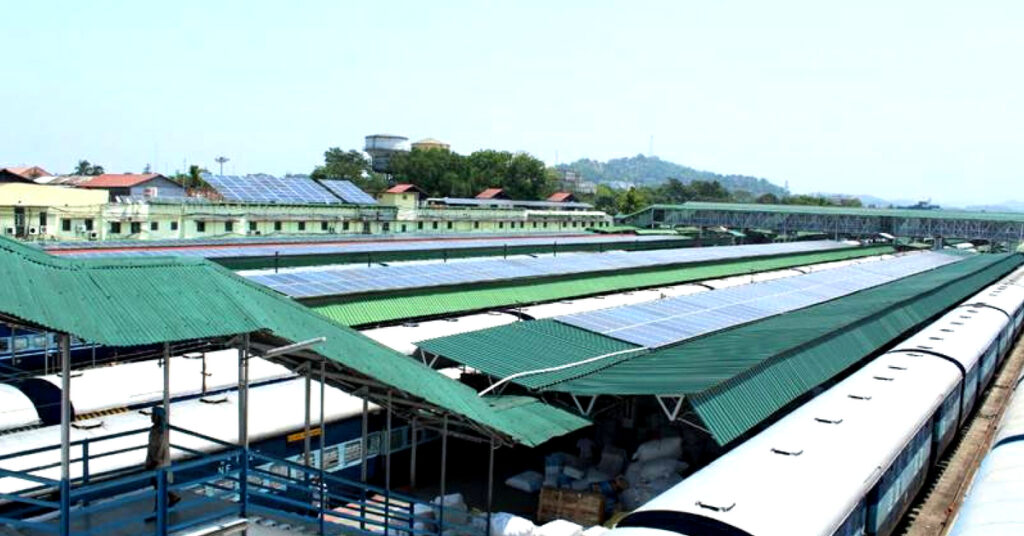India is rapidly emerging as a global leader in renewable energy initiatives, and the transport sector is no exception. A shining symbol of this green revolution is Guwahati Railway Station in Assam — proudly recognized as India’s first fully solar-powered railway station. This achievement is not just a technological milestone; it is a bold step toward realizing India’s vision of a cleaner, more sustainable future.
A Green Transformation in the Heart of Assam
Located in the northeast, Guwahati Railway Station underwent a complete solar makeover, installing a 700-kilowatt rooftop solar power plant. Today, the station meets 100% of its electricity requirements through clean, renewable solar energy. The project was executed with the aim of reducing dependence on conventional energy sources and minimizing the station’s environmental impact.
On average, the solar panels generate approximately 700 kilowatt-hours (kWh) of energy per day, significantly lowering the station’s carbon footprint. This has led to an annual saving of about 6.3 lakh rupees in electricity costs, alongside preventing the emission of nearly 7,000 tonnes of carbon dioxide each year. To put this into perspective, the carbon savings are equivalent to the environmental benefits of planting more than 35,000 trees.
ISO Certification and a Benchmark for Others
The green transformation of Guwahati Railway Station has earned it the prestigious ISO-14001 Certification for environmental management systems. This international standard acknowledges the station’s commitment to sustainability, responsible resource usage, and ecological conservation.
The success story of Guwahati has not gone unnoticed. Inspired by this initiative, Indian Railways has rolled out a broader commitment to environmental stewardship, aiming to become a net-zero carbon emitter by 2030. Solar panels are now being installed across hundreds of railway stations nationwide — over 960 railway stations have already embraced solar technology as part of Indian Railways’ ambitious green energy drive.
Impact on India’s Clean Energy Vision
The transformation of Guwahati Railway Station aligns perfectly with India’s National Solar Mission, one of the world’s most extensive programs aimed at promoting solar energy. It also contributes to the country’s larger goal of generating 500 gigawatts of non-fossil fuel energy capacity by 2030 under its commitment to the Paris Climate Agreement.
Such projects not only contribute to environmental conservation but also enhance energy security, reduce operational costs, and foster technological innovation in public infrastructure. Most importantly, they set a powerful example for other countries striving to balance economic growth with environmental responsibility.
Paving the Way for a Greener Future
The journey of Guwahati Railway Station stands as a beacon of hope and inspiration for sustainable transport. It proves that with visionary planning, investment in renewable technologies, and a strong commitment to the environment, traditional infrastructures can be transformed into eco-friendly models.
As India continues its green energy journey, initiatives like these will be instrumental in shaping a cleaner, healthier, and more prosperous future. Guwahati’s solar-powered station is not just about electricity; it is about empowering a movement toward sustainable living, setting the tracks for a greener tomorrow — one railway station at a time.


